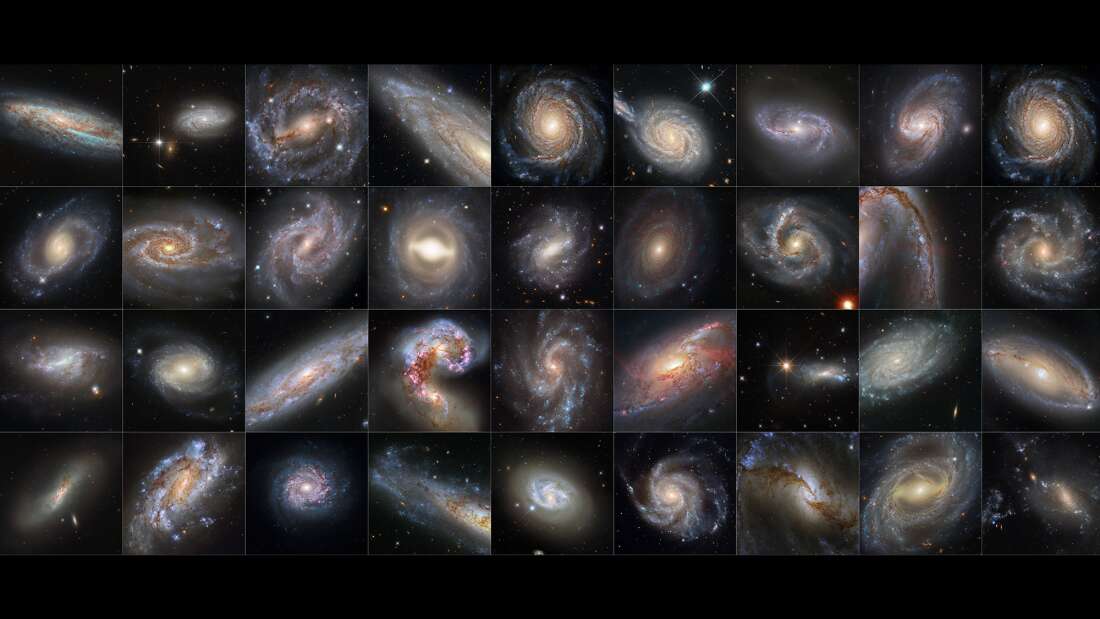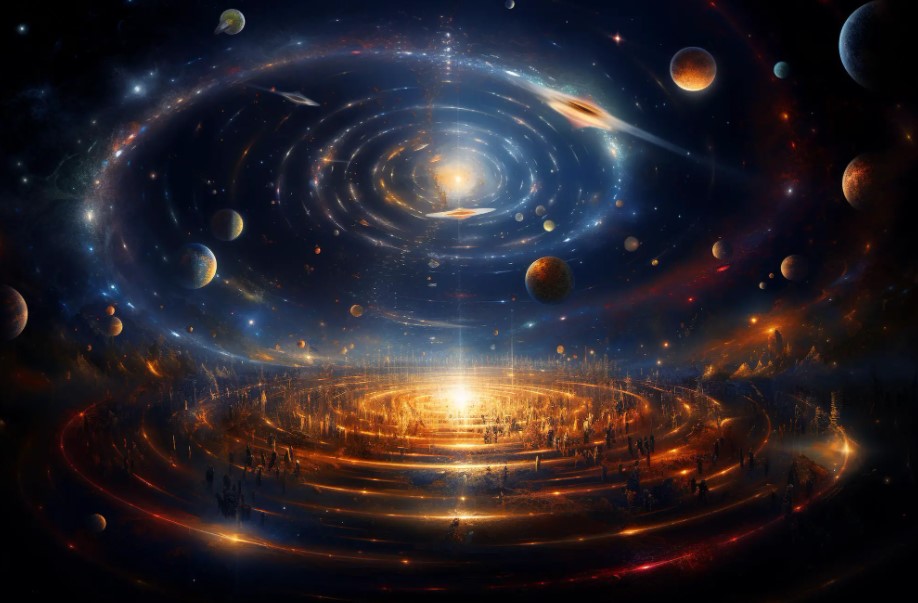The Origin of the Universe: Exploring the Cosmos' Birth
The Origin of the Universe
The origin of the universe is one of the greatest mysteries in science. There are many different theories about how the universe began, but there is no definitive answer.
One of the most popular theories is the Big Bang theory. The Big Bang theory states that the universe began with a very hot, dense state about 13.8 billion years ago. Since then, the universe has been expanding and cooling.
Another theory is the Steady State theory. The Steady State theory states that the universe has always existed and will always exist. New matter is constantly being created to keep the universe from expanding.
A third theory is the Oscillating Universe theory. The Oscillating Universe theory states that the universe goes through a cycle of expansion and contraction. The universe expands to a certain point, then contracts back to a point of singularity, and then expands again.
Each of these theories has its own strengths and weaknesses. The Big Bang theory is the most widely accepted theory, but it is not without its problems. For example, the Big Bang theory cannot explain what happened before the Big Bang.
The Steady State theory is also not without its problems. For example, the Steady State theory cannot explain why the cosmic microwave background radiation is not uniform in all directions.
The Oscillating Universe theory is also not without its problems. For example, the Oscillating Universe theory cannot explain why the universe is expanding at an accelerating rate.
The origin of the universe is a complex and fascinating topic. There is still much that we do not know about how the universe began. However, the theories that we do have provide us with a glimpse into the incredible history of our universe.
The Steady State Theory
The Steady State theory is a cosmological model that states that the universe has always existed and will always exist. In this model, new matter is constantly being created to keep the universe from expanding.
The Steady State theory was once a popular model for the universe, but it is now largely discredited. One of the main problems with the Steady State theory is that it cannot explain the cosmic microwave background radiation.
The Oscillating Universe Theory
The Oscillating Universe theory is a cosmological model that states that the universe goes through a cycle of expansion and contraction. In this model, the universe expands to a certain point, then contracts back to a point of singularity, and then expands again.
The Oscillating Universe theory is a relatively new model, and it is still being developed. One of the main problems with the Oscillating Universe theory is that it cannot explain why the universe is expanding at an accelerating rate.
The Future of Cosmology
The future of cosmology is bright. New observations and experiments are being planned that will help us to better understand the origin of the universe. In the coming years, we may finally learn the answer to the question of how the universe began.
https://cerebralfaith.net/response-to-hugh-ross-objections-to/
Religious and Mythological Explanations of the Origin of the Universe
The origin of the universe is a question that has fascinated humans for centuries. Many different cultures have developed their own religious and mythological explanations to answer this question.
Religious Explanations
Many religions believe that the universe was created by a divine being. In the Abrahamic religions, for example, God is said to have created the universe in six days. In Hinduism, the universe is said to be the product of Brahma, the creator god.
Mythological Explanations
Many cultures also have mythological stories that explain the origin of the universe. In Greek mythology, for example, the universe is said to have been created by the Titans, a race of giants. In Chinese mythology, the universe is said to have been created by Pangu, a giant who emerged from a cosmic egg.
Scientific Explanations
In addition to religious and mythological explanations, there are also a number of scientific explanations for the origin of the universe. The Big Bang theory is the most widely accepted scientific explanation for the origin of the universe. According to the Big Bang theory, the universe began as a very hot, dense point about 13.8 billion years ago. Since then, the universe has been expanding and cooling.
The origin of the universe is a complex question that has no easy answer. There are many different religious, mythological, and scientific explanations for the origin of the universe. Each of these explanations offers a unique perspective on this fascinating question.
- https://en.wikipedia.org/wiki/Big_Bang
- https://en.wikipedia.org/wiki/Creation_myth
- https://en.wikipedia.org/wiki/Religious_cosmology
Cosmological Theories and Models
The origin of the universe is one of the most fundamental questions in science. Cosmologists have developed a number of theories and models to explain how the universe came into being.
The Big Bang Theory
The Big Bang Theory is the prevailing cosmological model for the universe. It states that the universe began with a very hot, dense state about 13.8 billion years ago and has been expanding and cooling ever since.
The Big Bang Theory is supported by a number of lines of evidence, including the expansion of the universe, the cosmic microwave background radiation, and the abundance of light elements in the universe.
Inflation
Inflation is a period of rapid expansion that the universe underwent in the very early stages of its evolution. Inflation explains why the universe is so uniform on large scales and why it is flat.
The Big Crunch
The Big Crunch is a possible fate of the universe in which the expansion of the universe eventually reverses and the universe collapses back in on itself. The Big Crunch would only occur if the universe is sufficiently dense.
The Big Freeze
The Big Freeze is another possible fate of the universe in which the expansion of the universe continues forever, causing the universe to become increasingly cold and empty. The Big Freeze would only occur if the universe is not sufficiently dense.
The Multiverse
The Multiverse is a hypothetical concept that there are many different universes, each with its own set of laws of physics and its own history. The Multiverse is a possible explanation for the fine-tuning of the universe for life.
The origin of the universe is a complex and fascinating topic. Cosmologists have made great progress in understanding the universe, but there are still many mysteries that remain to be solved.
- https://en.wikipedia.org/wiki/Big_Bang
- https://en.wikipedia.org/wiki/Big_Crunch
- https://en.wikipedia.org/wiki/Multiverse


The Multiverse Theory: A Brief Overview
The Multiverse Theory is a hypothetical idea that there are many different universes beyond our own. Each universe is said to have its own set of physical laws and constants, and may even have different dimensions of space and time.
There are many different versions of the Multiverse Theory, but they all share the common belief that our universe is not the only one. Some theories suggest that there are an infinite number of universes, while others suggest that there are only a finite number.
There is no scientific evidence to prove or disprove the Multiverse Theory, but there is some indirect evidence that supports it. For example, one piece of evidence is the existence of quantum foam. Quantum foam is a hypothetical field of energy that exists at the smallest level of space and time. It is thought that quantum foam could be the source of new universes.
Another piece of evidence that supports the Multiverse Theory is the existence of cosmic inflation. Cosmic inflation is a hypothetical period of rapid expansion that occurred in the early universe. It is thought that cosmic inflation could have created an infinite number of universes.
The Multiverse Theory is a fascinating and complex idea that has the potential to change our understanding of the universe. However, it is important to remember that it is just a theory, and there is no scientific evidence to prove it.
Arguments For and Against the Multiverse Theory
There are a number of arguments for and against the Multiverse Theory.
Arguments For
- The existence of quantum foam
- The existence of cosmic inflation
- The anthropic principle
The anthropic principle states that the universe must be fine-tuned for life to exist, and that this is evidence that there are many other universes that are not fine-tuned for life.
Arguments Against
- The lack of scientific evidence
- The difficulty of testing the theory
- The possibility that the theory is false
The Multiverse Theory is a difficult theory to test, and it is possible that it is false. However, it is also a fascinating and complex idea that has the potential to change our understanding of the universe.
The Future of the Multiverse Theory
The Multiverse Theory is a relatively new theory, and it is still being developed. However, it is a fascinating and complex idea that has the potential to change our understanding of the universe.
In the future, scientists may be able to find evidence to prove or disprove the Multiverse Theory. However, even if the theory is never proven, it will still be a valuable tool for understanding the universe.





































